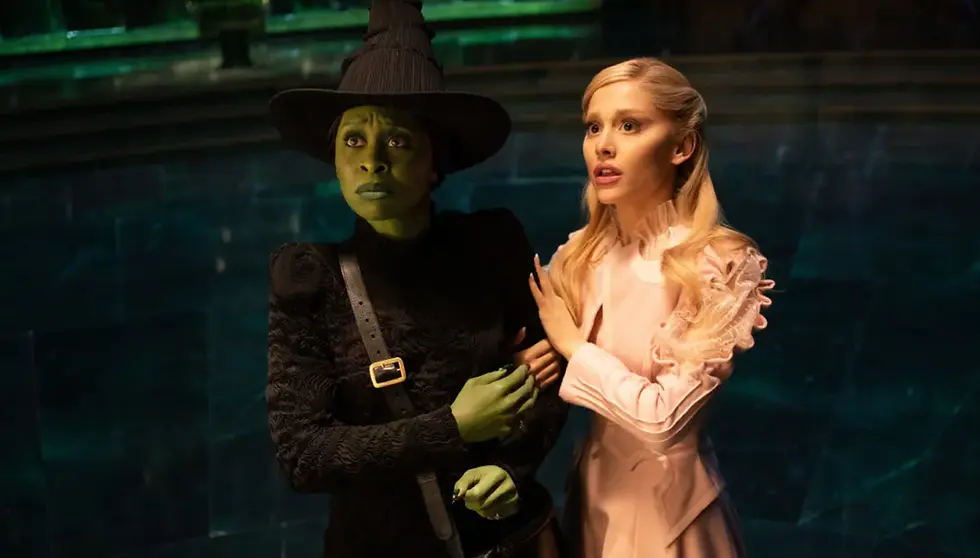Indigo - Curve Theatre Leicester
- comaweng
- Jun 26, 2025
- 4 min read

There was one spare seat left in the front row for the first preview of Indigo, a show which I’d seen at a pre-production phase, having been invited to see it at the end of a rehearsal period in the building where I work for a living. (There aren’t that many office managers in the world who can withstand noise bleed from theatre auditions and rehearsals all day, practically every day.) It pulled on the emotional heartstrings, and as Leicester is one of the few places out of the capital that has late night direct trains back to London (a luxury that doesn’t even extend to Chichester), I thought I would take a look and see what became of something that had the backing of miscellaneous investors who were amongst an invited audience (that included yours truly) on whatever afternoon it was on Tottenham Court Road.
At the heart of the story is Emma (Katie Cailean), a 16-year-old who is mute and autistic. The musical almost immediately pisses off those who can’t get around the fact that this mute character has plenty of lyrics in the show, even if these are inner thoughts sung for the benefit of the audience, and it is, after all, a bloody musical. She is gifted, as many autistic people are. Or should I have said ‘people with autism’? We theatre critics try to be sensitive but there is division as to what is the most appropriate term. There’s one theatre company, Graeae, that is so didactic about terminology that I refuse to review any more of their shows. Personally, I understand the principle behind the latter, because it recognizes people like Emma as people first before anything else. Anyway, she expresses herself through art, specifically through vivid paintings – her talent, to cut a long story short, is eventually recognised by her family.

Emma was abandoned by her mother, Beverly (Rebecca Trehearn), at a young age. Beverly had given birth at the age of nineteen and as her then husband had been able to get on to well with Emma despite the challenges of raising someone mute and autistic (or perhaps because of them), and she (or so she believed) had failed, she felt the best thing to do at the time was to bugger off and leave them to get on with it. Her new – well, newer – beau, Rick (Nuno Queimado) wasn’t told about Emma, resulting in the inevitable row when ‘the truth’ spills out. After the death of Emma’s father, social services designate a caseworker, Alicia (Tania Mathurin), who goes above and beyond, to say the least. Alicia manages to persuade Emma to provide just enough information to call someone who might be of assistance – Elaine (an engaging Lisa Maxwell), Emma’s grandmother, who had been a regular visitor at Emma’s father’s request, until such time as her (Elaine’s) dementia made that arrangement unfeasible.
Elaine, of course, doesn’t remember that, because she has dementia (geddit?) so when the call comes from Alicia, she drops everything and rushes over to Emma, and brings her home. Except her home is that of Rick and Beverley, who agreed to take her in after it became more than apparent that it was unsafe for Elaine to be living independently. So the show then becomes, in part, about the struggle that people of Beverley’s generation face – caring for an ageing parent as well as a dependent child.
In the world of Indigo, there are some American families who are quite capable of living without guns, McDonald’s or Netflix. Completing the set of on-stage characters is Tyler (Hugo Rolland). It wasn’t quite clear to me how exactly he started hanging around Rick and Beverley, and by extension Emma and Elaine, except to say he only ever outstayed his welcome one time in the timeline of the show. It’s an arrangement that works for Tyler, a teenage boy who gets paid quite handsomely, in cash, by Rick, for miscellaneous errands, of which there are quite a few in a household as busy as this one.
British theatre has, of course, been fairly recently exposed to The Little Big Things, the story of Henry Fraser, a promising rugby player whose life trajectory changed permanently after an accident on an overseas holiday left him paralysed from the neck down. He took up painting, learning to draw with his mouth, and made a success of that. Indigo does a better job, I think, of portraying how relentlessly life goes on regardless of what new incidents arise. It’s a musical with neither jazz hands nor a dance captain, and it doesn’t need to be. Well worth the trip to Leicester and back – and I hope it has many more lives beyond a month in the studio space at Curve.




Comments